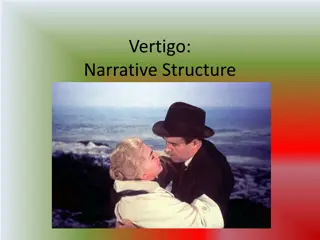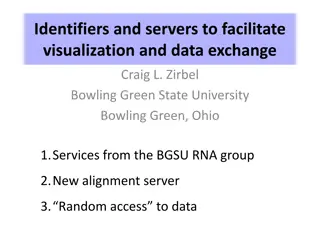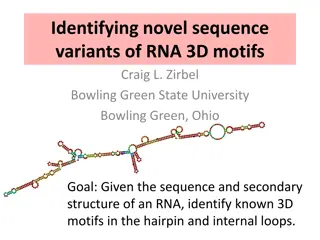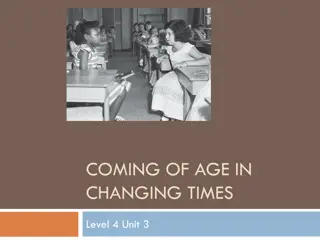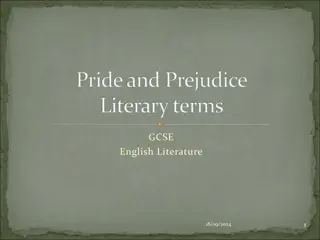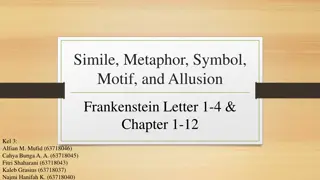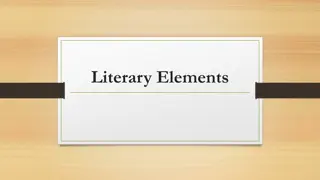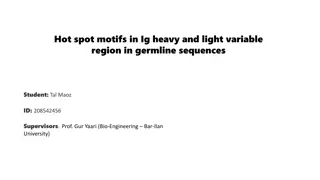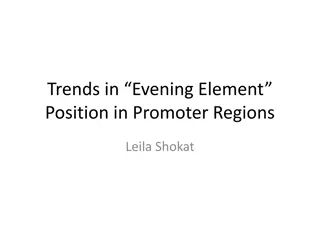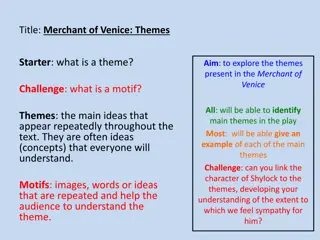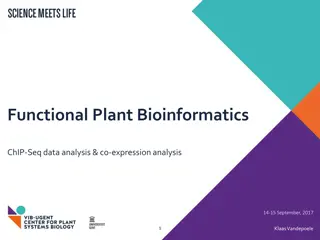Analyzing the Narrative Structure of Vertigo
The film Vertigo follows a three-act structure - setup, conflict, resolution. It delves into the narratives of Madeleine Elster and Judy Barton, leading to a tragic resolution. The linear narrative is punctuated by a spiral motif, adding a sense of circularity and repetition, mirroring the character
0 views • 12 slides
Identifiers and Servers for Data Visualization and Exchange
Craig L. Zirbel at Bowling Green State University offers services through the BGSU RNA group for analyzing and annotating RNA 3D structures. They focus on Watson-Crick and non-Watson-Crick base pairs, base stacking, interactions, and motif searches. The group's ultimate goal is to predict 3D motifs
0 views • 31 slides
RNA 3D Motif Analysis: Novel Sequence Variants Identification
A research project at Bowling Green State University aims to identify 3D motifs in RNA hairpin and internal loops using sequence and secondary structure information. The study focuses on finding likely sequence variants of known motifs, leveraging geometric considerations and basepair isostericity f
0 views • 28 slides
Exploring Fred's Character Through Key Moments at Christmas Party
Engage with key moments at Fred's Christmas Party to understand his patience and kindness towards Scrooge. Reflect on how Dickens uses Fred to set a positive example for Victorian readers. Analyze the depiction of various characters like the miners, lighthouse keepers, and ship crew in relation to t
0 views • 12 slides
Analyzing Boo in "Coming of Age in Changing Times
Explore the character development of Boo Radley in "Coming of Age in Changing Times" through various activities like completing a graphic organizer, marking significant details in the text, and constructing interpretive statements. Dive into themes of subplot, motif, and how characters evolve throug
0 views • 10 slides
Literary Analysis of "Pride and Prejudice" Characters and Themes
Explore the key literary terms such as protagonist, antagonist, circumlocution, motif, and aphorism in Jane Austen's "Pride and Prejudice". Understand the roles of characters like Elizabeth and Darcy, Mr. Collins, and delve into themes like love, class, and societal norms depicted in the novel.
0 views • 10 slides
Genetic Analysis Summary Report
This report presents a detailed analysis of pass, fail, and borderline statuses across various genetic testing parameters. It includes information on chromatin fragmentation, library size, sequencing statistics, motif identification, and more. The report provides insight into the accuracy and comple
0 views • 10 slides
Literary Devices in Frankenstein: Analysing Simile, Metaphor, Symbol, Motif, and Allusion
Explore the intricate use of simile, metaphor, symbol, motif, and allusion in Frankenstein through excerpts from Letter 1-4 and Chapters 1-12. Dive into the vivid comparisons, symbolic representations, and layered meanings embedded in Mary Shelley's classic novel.
0 views • 11 slides
Understanding Literary Elements: Characters, Conflict, and Motif
Explore essential literary elements such as types of characters (round, flat, dynamic, static, protagonist, antagonist), characterization (direct and indirect), conflicts (interpersonal, intrapersonal, man vs. nature, man vs. society), and motifs with examples.
0 views • 26 slides
Hot Spot Motifs in Ig Heavy and Light Variable Region Sequences
B cells express unique receptors to combat pathogens, with membrane-bound immunoglobulins forming their diverse repertoire. The regions of high variance, known as CDRs, play a crucial role in antigen binding. Ig genes contribute significantly to immune function, with recent studies revealing genetic
0 views • 13 slides
Understanding Protein Structural Motifs: The Beta Turn
In the realm of protein structure, the beta turn plays a crucial role in folding patterns. This simple motif involves a 180-degree turn in the backbone, linking adjacent beta strands. Typically consisting of 2 to 5 amino acids, with glycine often at position 3 and proline at position 2, the beta tur
0 views • 5 slides
Biologically Important Evening Element in Promoter Regions: Insights from Research by Leila Shokat
The research explores the significance of the Evening Element as a motif in gene promoter regions regulated by CCA1. Understanding the importance of motif positions in promoters reveals insights into gene regulation and biological relevance. The study highlights the relevance of consistent motif pos
0 views • 6 slides
Exploring Main Themes and Sympathy for Shylock in The Merchant of Venice
Explore the main themes present in The Merchant of Venice, such as prejudice, justice, and revenge. Delve into the motif of sympathy towards the character Shylock, examining the audience's perception and feelings towards him. Gain insight into the repeated ideas and concepts that shape the play's na
0 views • 8 slides
Plant Bioinformatics Studies on ChIP-Seq Data Analysis
Plant bioinformatics researchers conducted experimental analyses and mapped gene regulatory networks using ChIP-Seq data. The studies involved exploring gene expression, regulatory interactions, and transcription factor binding sites. Techniques such as peak calling, motif finding, and peak annotati
0 views • 19 slides
